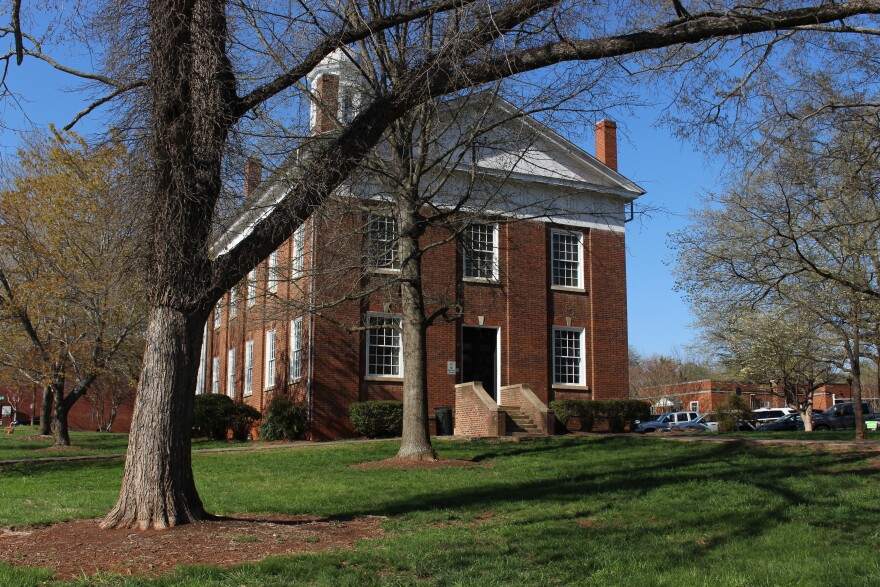Updated: Jan. 14, 2021. 12:10 p.m.
Hillsborough is the first North Carolina municipality to pass an ordinance to protect its LGBTQ residents from discrimination since a three-and-a-half-year statewide pause on enacting such rules expired in December.
The ordinance unanimously passed by the Hillsborough Town Commissioners on Monday prohibits discrimination based on sex, sexual orientation, gender identity or expression in places of public accommodation and employment. Places of public accommodation is any establishment that provides a good or service, like a hotel or a restaurant.
Any person or business found guilty of violating the ordinance can be charged with a Class 3 misdemeanor and fined $500 every day that they are not in-compliance with the ordinance. These penalties also apply to discrimination against people based on race, creed, color, national origin or ancestry, marital or familial status, pregnancy, veteran status, religious belief, age or disability.
Hillsborough's ordinance does not address who can use multiple-occupancy public restrooms, showers and changing rooms. According to House Bill 142, only the North Carolina General Assembly can rule on access to those places.
Fellow Orange County towns – Chapel Hill and Carrboro – followed Hillsborough in passing similar ordinances. Carrboro passed its new ordinance Tuesday, and Chapel Hill passed one Wednesday. The county has a history of progressive policies.
Hillsborough Mayor Jenn Weaver said it's a good first step forward.
"I would offer that this reflects the values of our community,” Weaver said. “And that this offers the opportunity to extend protections to vulnerable communities in public accommodations and private employment."
A new ordinance is expected in Durham soon as well. The Orange County Commissioners and Durham City Council will consider similar non-discrimination ordinances for LGBTQ people on Jan. 19. The city council discussed Durham's non-discrimination ordinance at a work session on Jan. 7.
The statewide moratorium blocking municipalities from enacting new anti-discrimination measures was created in 2017 as a compromise between Democratic Gov. Roy Cooper and Republican lawmakers to do away with the state's 2016 House Bill 2 related to restroom access for transgender people.
Also known as "the bathroom bill," a key disputed section of House Bill 2 directed transgender people to use public bathrooms matching their biological sex instead of the gender they identify with. It drew national criticism and led to several large corporations, sports teams and organizations to relocate events to other states or reconsider expansion in North Carolina. The NCAA briefly imposed a ban on holding its championship events, such as the college basketball tournament, in the state. The NCAA lifted its ban after the bill was repealed and replaced with House Bill 142 in April 2017.
Although the state legislature that convenes later this week will still be controlled by Republicans, the party lacks a veto-proof majority following the November election. This means they will have limited options to combat any local ordinances that might be passed.
WUNC's Celeste Gracia contributed to this report.








